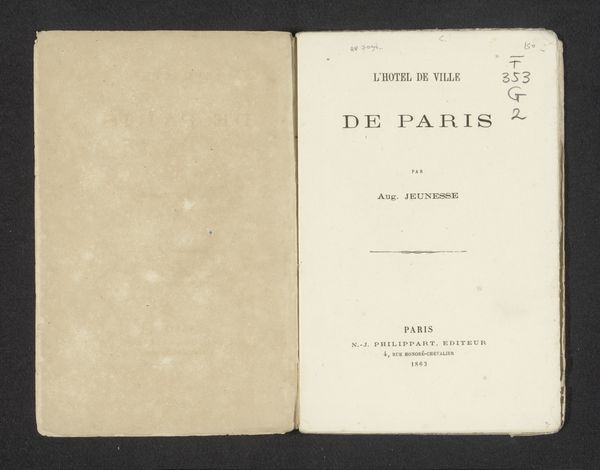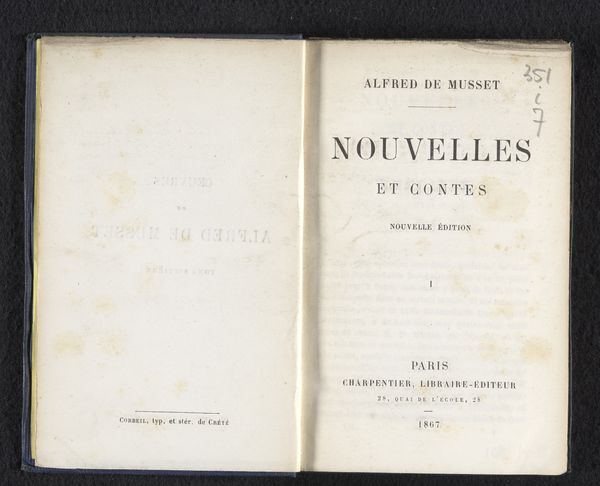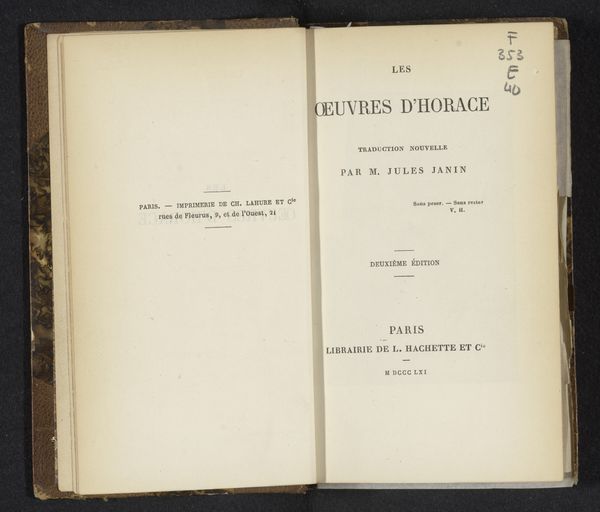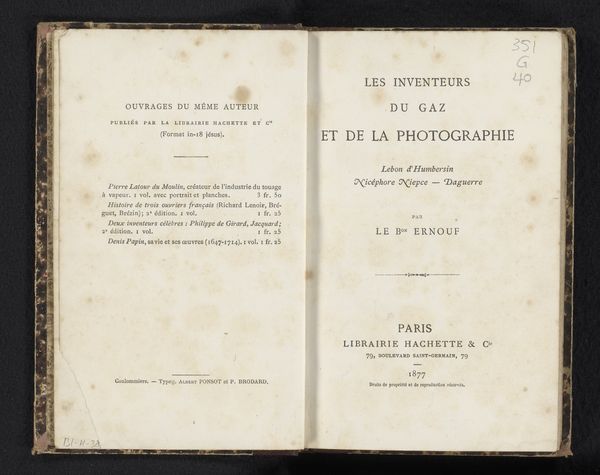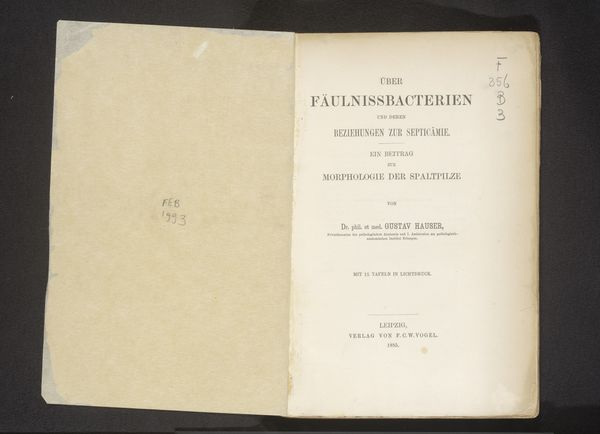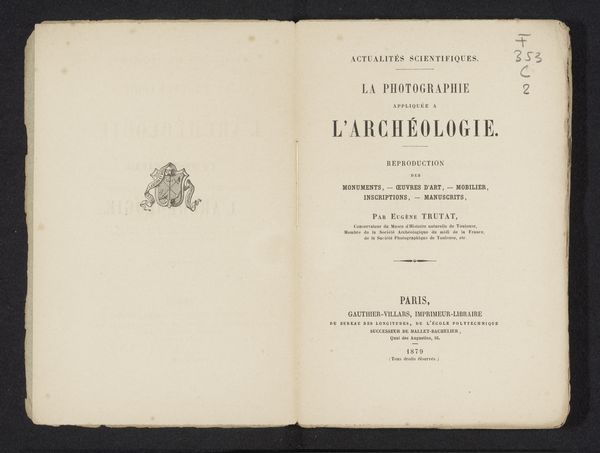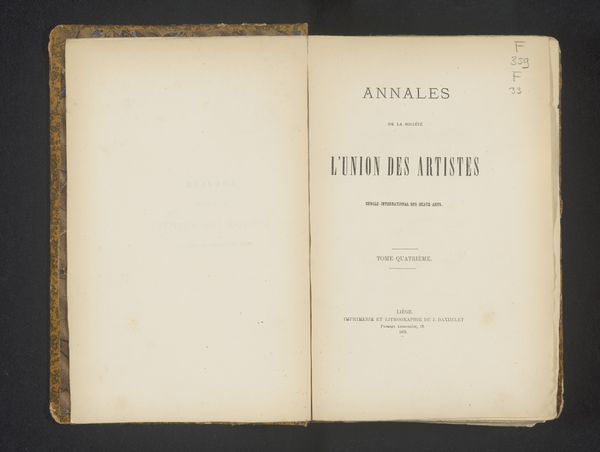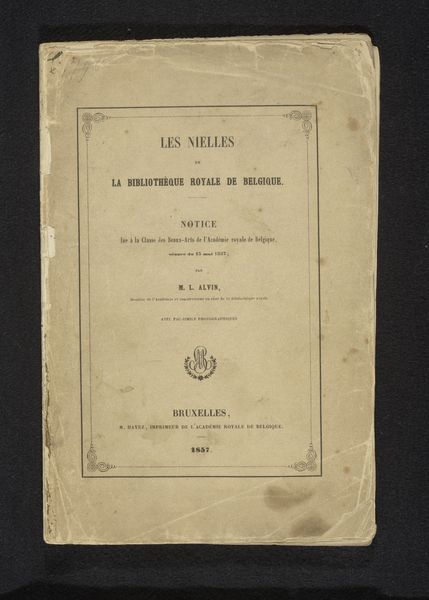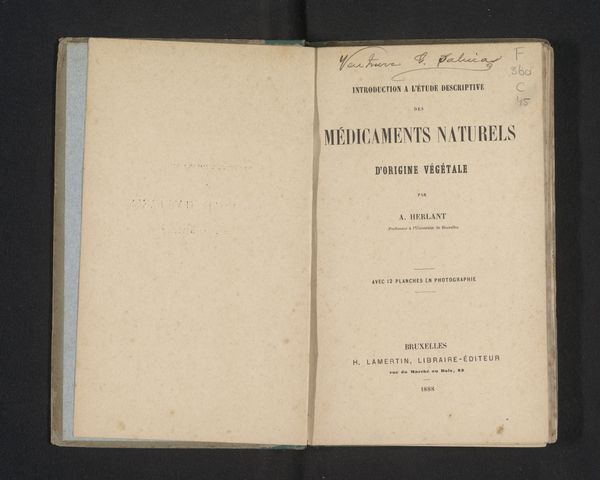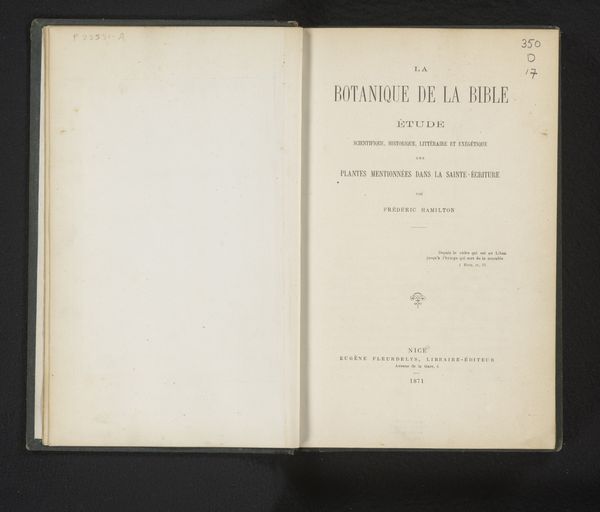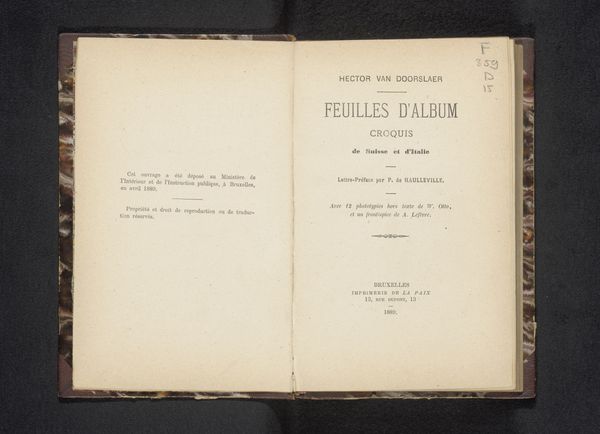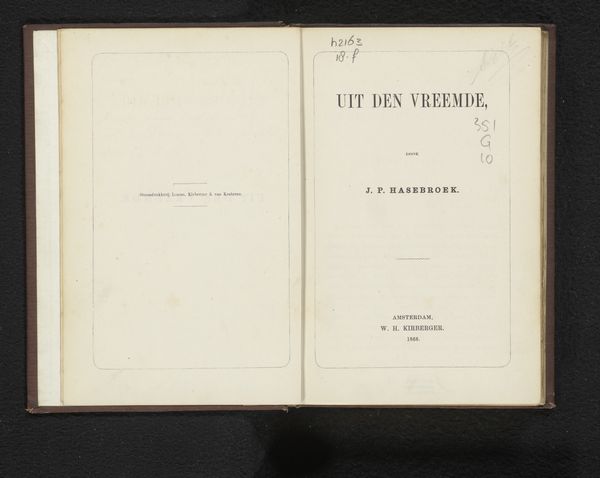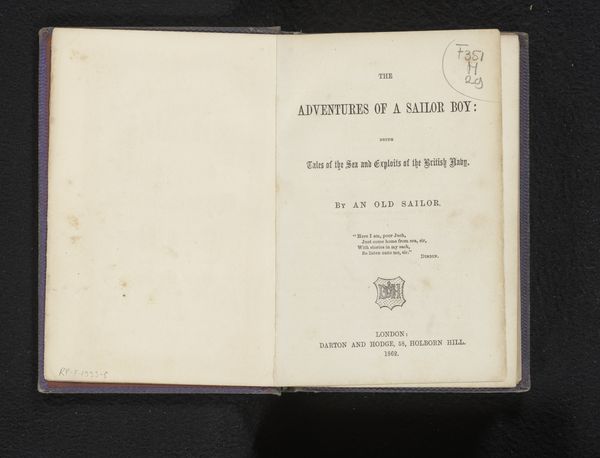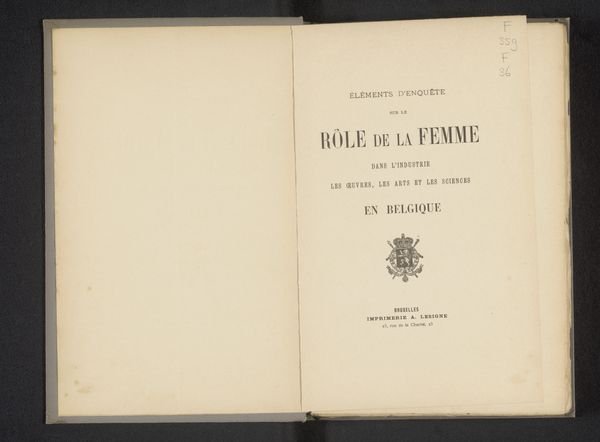
print, paper, typography
#
aged paper
#
homemade paper
# print
#
book
#
sketch book
#
hand drawn type
#
paper
#
personal sketchbook
#
typography
#
hand-drawn typeface
#
fading type
#
thick font
#
sketchbook drawing
#
sketchbook art
Dimensions: height 186 mm, width 119 mm, thickness 4 mm
Copyright: Rijks Museum: Open Domain
Editor: Here we have "Le Palais des Doges à Venise," printed in 1863. The material, especially the aging, gives the piece a melancholic feel. What's your take on this print? Curator: It is fascinating to see how this printed material functions as a historical artifact, offering a glimpse into 19th-century publishing and attitudes toward Venice. Consider how the Doge's Palace, a symbol of Venetian power and prestige, was being disseminated as a visual commodity through mass production. Does that impact your reading of the piece? Editor: It does. I guess I wasn't thinking about the accessibility aspect before. Was Venice, and particularly this palace, a common subject at the time? Curator: Indeed. Venice, with its unique urban fabric and historical weight, became an increasingly popular subject for artists and writers, particularly during the Romantic era and beyond. The publication of this print demonstrates the growth of tourism and cultural exchange. Consider how printed images played a crucial role in shaping public perceptions of places like Venice. Who had access to these prints and what did this represent? Editor: I see. It suggests that the 'Grand Tour' experience was perhaps becoming accessible to a wider audience, even if vicariously. Also the choice of typography is rather old and worn, it reinforces that feel you were mentioning before about its public perception, right? Curator: Precisely. Also, note the publisher's address. Mapping such details provides insights into the art market and publishing industry during that time. Does learning that information make it more historically informative than it originally was to you? Editor: Absolutely. Thinking about who made it and distributed it contextualizes it so well. Curator: Agreed. And remember, seemingly simple prints like these offer invaluable insights into the complex interplay between art, culture, and commerce.
Comments
No comments
Be the first to comment and join the conversation on the ultimate creative platform.
